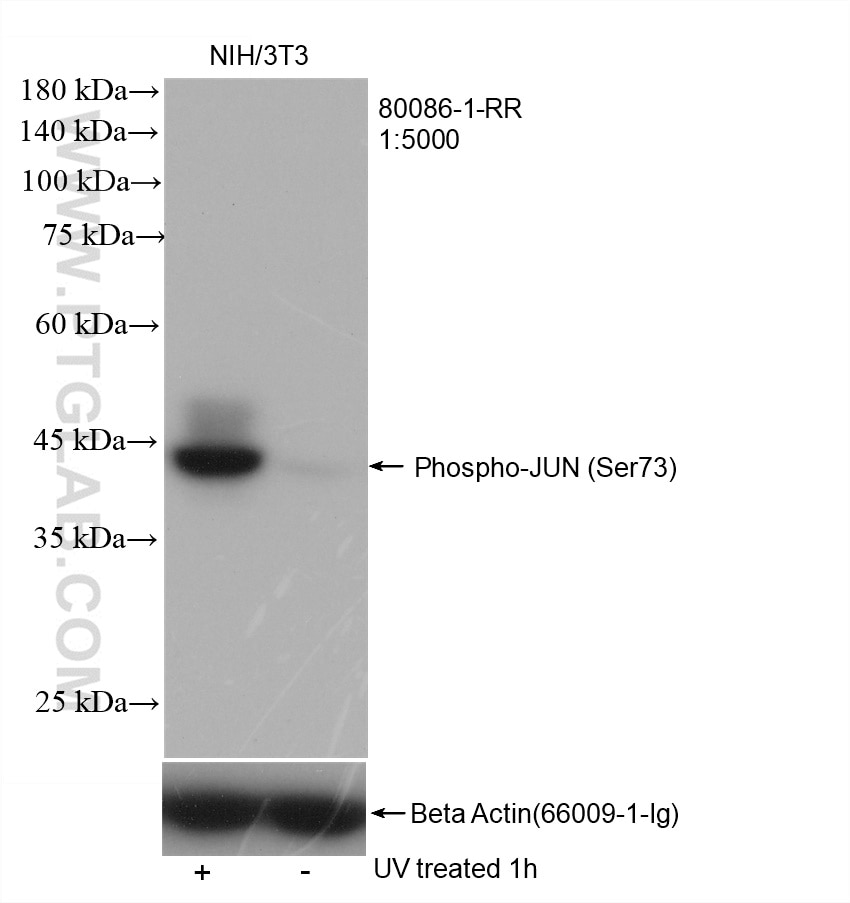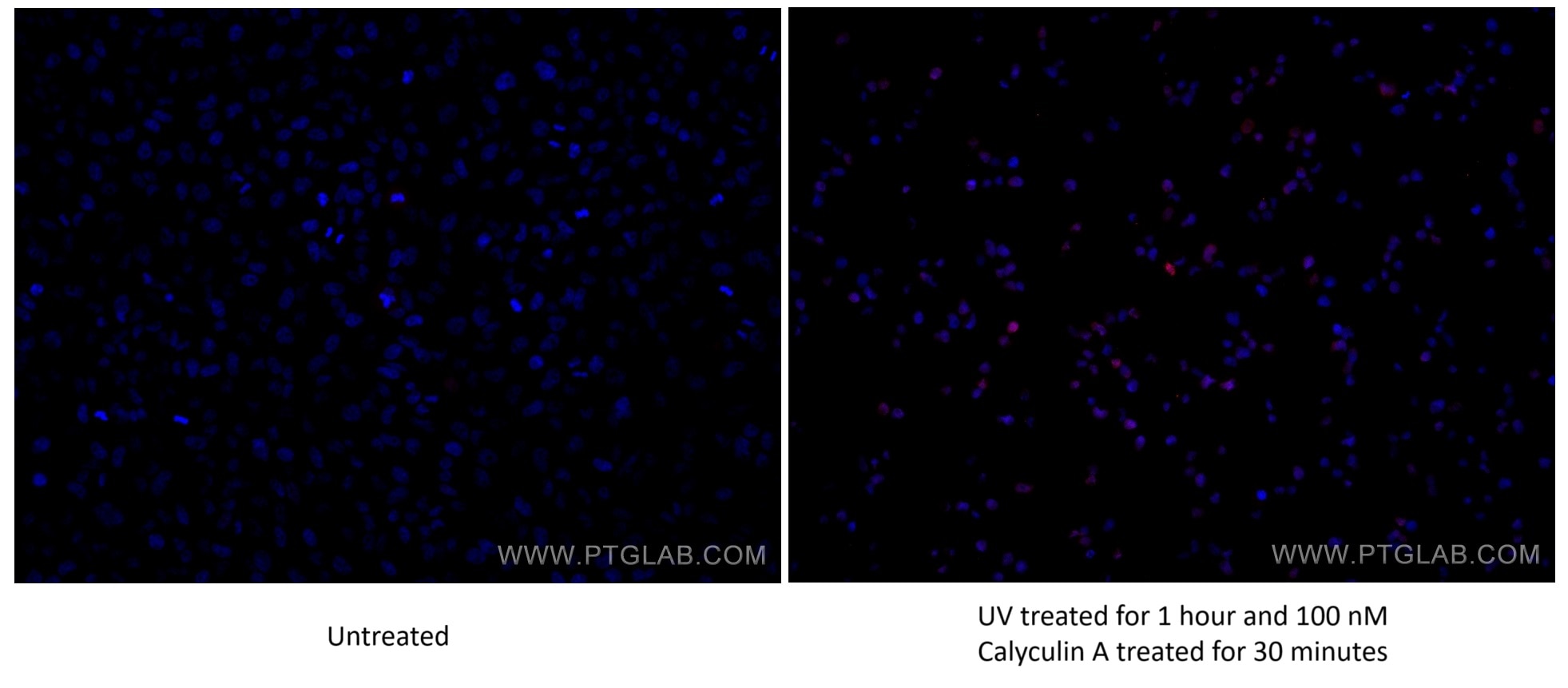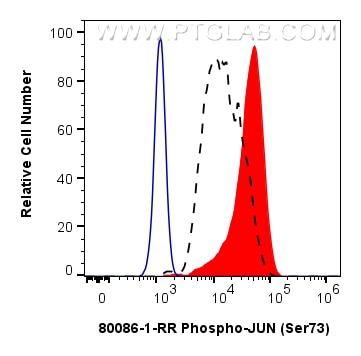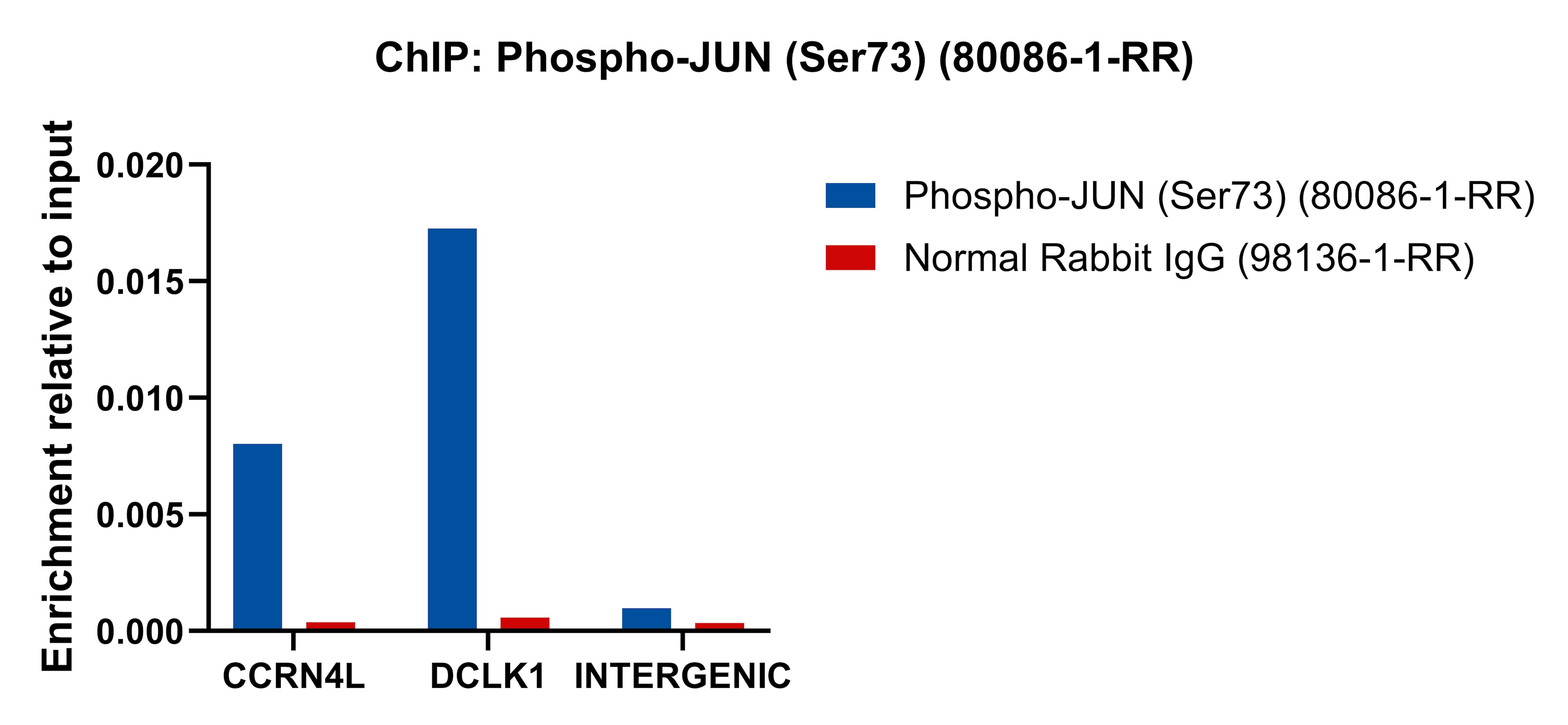Phospho-JUN (Ser73) Rekombinanter Antikörper
Phospho-JUN (Ser73) Rekombinant Antikörper für WB, IF/ICC, FC (Intra), Indirect ELISA, ChIP-qPCR
Wirt / Isotyp
Kaninchen / IgG
Getestete Reaktivität
human, Maus
Anwendung
WB, IF/ICC, FC (Intra), Indirect ELISA, ChIP-qPCR
Konjugation
Unkonjugiert
CloneNo.
4A18
Kat-Nr. : 80086-1-PBS
Synonyme
Geprüfte Anwendungen
Produktinformation
80086-1-PBS bindet in WB, IF/ICC, FC (Intra), Indirect ELISA, ChIP-qPCR Phospho-JUN (Ser73) und zeigt Reaktivität mit human, Maus
| Getestete Reaktivität | human, Maus |
| Wirt / Isotyp | Kaninchen / IgG |
| Klonalität | Rekombinant |
| Typ | Antikörper |
| Immunogen | Peptid |
| Vollständiger Name | jun oncogene |
| Berechnetes Molekulargewicht | 331 aa, 36 kDa |
| Beobachtetes Molekulargewicht | 42-45 kDa |
| GenBank-Zugangsnummer | BC068522 |
| Gene symbol | JUN |
| Gene ID (NCBI) | 3725 |
| Konjugation | Unkonjugiert |
| Form | Liquid |
| Reinigungsmethode | Protein-A-Reinigung |
| Lagerungspuffer | PBS only |
| Lagerungsbedingungen | Store at -80°C. 20ul Größen enthalten 0,1% BSA. |
Hintergrundinformationen
JUN, the most extensively studied protein of the activator protein-1 (AP-1) complex, is involved in numerous cell activities, such as proliferation, apoptosis, survival, tumorigenesis and tissue morphogenesis (PMID: 22180088). JUN is a transcription factor that recognizes and binds to the enhancer heptamer motif 5'-TGA[CG]TCA-3'. It promotes activity of NR5A1 when phosphorylated by HIPK3 leading to increased steroidogenic gene expression upon cAMP signaling pathway stimulation. JUN is a basic leucine zipper (bZIP) transcription factor that acts as homo- or heterodimer, binding to DNA and regulating gene transcription (PMID: 9732876). In additon, extracellular signals can induce post-translational modifications of JUN, resulting in altered transcriptional activity and target gene expression (PMID:8464713). More over, it has uncovered multiple layers of a complex regulatory scheme in which JUN is able to crosstalk, amplify and integrate different signals for tissue development and disease. Jun is predominantly nuclear, ubiquitinated Jun colocalizes with lysosomal proteins (PMID: 15469925). This antibody is raised against synthetic phosphopeptide corresponding to residues surrounding Ser73 of human JUN, which can detect the bands around 42-45 kDa.









